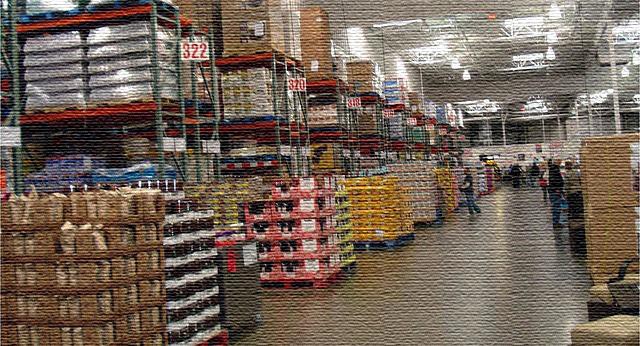In Support of Credit Card Points, With Caveats
by Sydney Bufkin

My husband and I put almost all of our expenses on our Costco American Express card. Dinner, groceries, gas, travel — it all goes on the card. And then once a month, I use money from our joint checking account to pay the bill in full. Sometimes we’ve had an expensive month: We’ve been doing a lot of traveling lately, and we’re preparing for a cross-country move, so our credit card bills have been much higher than usual lately. When that happens, I figure out how much more money we need, and we each transfer that amount from our individual accounts to the joint one (we have a standard amount we put in the account each month that covers normal expenses, so the extra transfers only happen when we buy something big, like furniture or plane tickets).
This works for us because we don’t live paycheck-to-paycheck. I would never recommend making heavy use of credit if you’re coming up lean at the end of every month. But we do have enough that we could pay off last month’s credit card bill and pay for this month’s spending. So always being one month behind in paying for things, so to speak, isn’t something that worries me. Besides, when I calculate how much money we have, I always subtract the current credit card balance from whatever’s in savings. I’m very aware of the fact that at any given point in the month, our checking balance isn’t accurate until I account for what our credit card bill will be.
I like this system for a number of reasons. I’m pretty good at managing our finances (and am much more temperamentally suited to the task than my husband), but I’m not one of those people who can track the minutiae of spending with sub-categorized budgets and spreadsheets. My overall philosophy is to make sure there’s more money coming in than going out and to ask myself hard questions about most of my purchases: Do I really need this? Is it really worth eating out twice in one week? Can I wait a few days and see if I still want this? The monthly credit card bill is how I keep an eye on our overall spending. I know how much it usually is, and when it’s higher than normal, I can look over the statement and figure out if we need to cut back.
My credit cards are also the only things that appear on my credit history (I have a personal credit card in addition to the one I share with my husband — I put expenses like shoes and clothes on that one). I bought my car in cash and I don’t have any student debt, so all a credit check turns up is a long list of paid-in-full-and-on-time credit card payments. Sure, there are other ways to build credit, but I’m lazy, and this is the easiest.
And then there are the rewards. Our American Express gives us 3 percent cash back on gas and travel, 2 percent back on some things I don’t remember, and 1 percent on everything else. My Chase card has similar, though less generous, rewards. Once a year, we get a check in the mail and go down to Costco to cash it (and to buy rice and flour in bulk as part of our preparations for the zombie apocalypse). This year, the check was about $250. Not an earth-shattering amount, but it paid for our Costco purchases and a couple of nice dinners out. My Chase card actually lets me apply the cash back directly to my bill, which means that rather than thinking of that money as a reward, I just think of it as “income”.
I’ve been paying for things with credit cards for at least a decade. Though I can understand how some people would experience credit as free money, I tend to fall into the other category, and it often feels like I’m paying for things twice: Once when I make the decision to buy something (often after debating over whether or not I really need it), and then again when I pay the bill at the end of the month. Credit cards, in other words, don’t make me any more inclined to impulse purchases or over-spending.
There are a lot of good reasons to avoid relying on credit, but there are also reasons to take advantage of it, with caveats: If you have a comfortable emergency fund and save more than you spend, if you usually aren’t tempted into impulse spending, if you will remember to pay your bill every month, and if your expenses are high enough to make the rewards worthwhile. If a credit card company wants to pay me for living within my means and paying my bills on time — something I’m going to do anyway — I don’t see why I shouldn’t take their money. They’d be all too happy to take mine.
Previously: How to Stop Going into Credit Card Debt for the Sake of “Points”
See More: Stories by Sydney
Sydney Bufkin lives in Austin and tries not to let her dissertation take over her life. Sometimes she even finds time to write about other things. Photo: Portal Abras
Support The Billfold
The Billfold continues to exist thanks to support from our readers. Help us continue to do our work by making a monthly pledge on Patreon or a one-time-only contribution through PayPal.
Comments